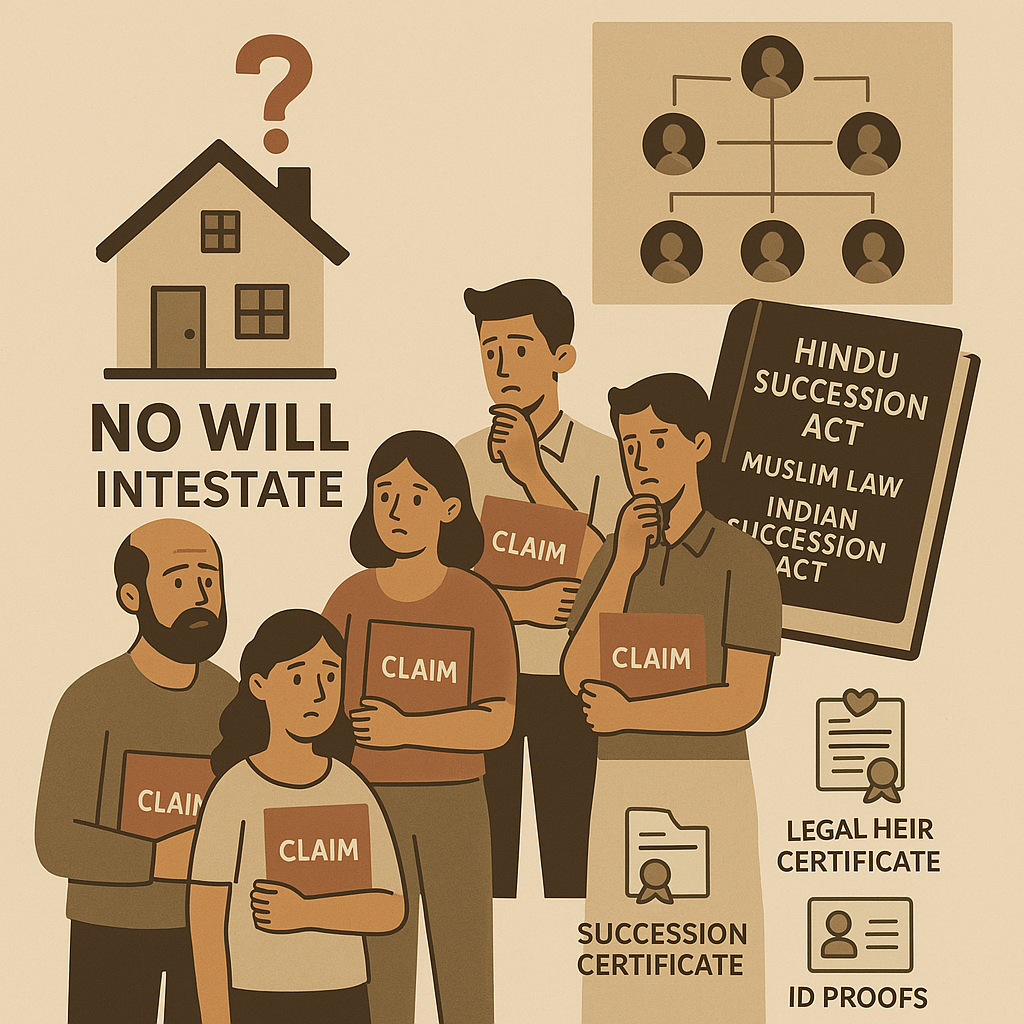Inheriting Property Without a Will in India: Legal Process & Succession Rules

When someone dies without a Will, their property is inherited through intestate succession, governed by religion-specific laws. Hindus follow the Hindu Succession Act, Muslims follow Shariah law, and Christians and Parsis are covered under the Indian Succession Act, 1925.
Legal heirs must obtain a Legal Heir Certificate from the local authority and may need a Succession Certificate from a civil court to claim movable assets. For immovable property, heirs must apply for mutation at the municipal office to update ownership records. If multiple heirs are involved, a No Objection Certificate (NOC) may be required to avoid disputes.
The hierarchy of heirs varies:
Hindus: Class I heirs (spouse, children, mother) get priority
Muslims: Shares are fixed by Quranic rules
Others: Follow a defined order under the Indian Succession Act
Always consult a lawyer to ensure proper documentation and avoid delays or legal challenges.
- Lakshadweep
- Delhi
- Puducherry
- PROPIINN
- Arunchal Pradesh
- Assam
- Bihar
- Chhattisgarh
- Goa
- Gujarat
- Haryana
- Himachal Pradesh
- Jharkhand
- Karnataka
- Kerala
- Maharashtra
- Madhya Pradesh
- Manipur
- Meghalaya
- Mizoram
- Nagaland
- Odisha
- Punjab
- Rajasthan
- Sikkim
- Tamil Nadu
- Tripura
- Telangana | Andhra pradesh
- Pulse
- Uttar Pradesh
- Uttarakhand
- West Bengal
- Andaman and Nicobar Islands
- Chandigarh
- Dadra and Nagar Haveli and Daman and Diu
- Jammu and Kashmir
- Ladakh



